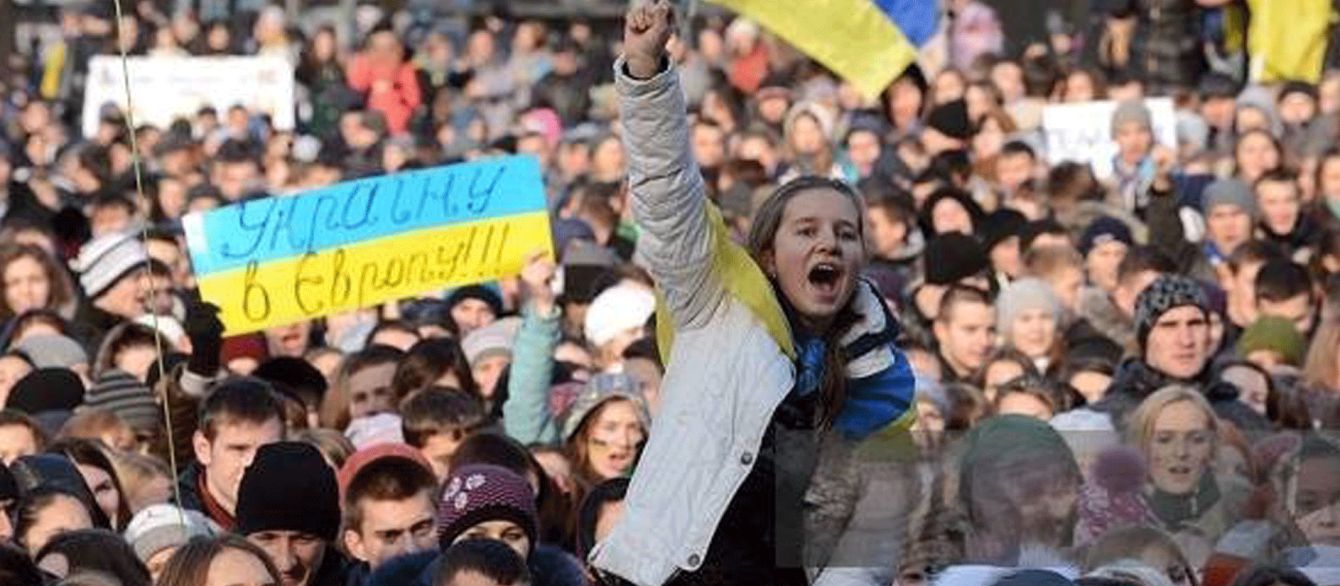Women play a prominent role in pro-democracy movements and contemporary revolutions around the globe. The book discussed at this event proposes an original typology of such participation, using the case of the 2013–2014 Revolution of Dignity (Euromaidan) in Ukraine.
Using three dimensions (women’s motivations for engagement, performance of particular roles during mass mobilization, and gender-related outcomes), the book distinguishes three models of participation in revolution: (1) patriarchal, (2) emancipatory, and (3) hybrid. The first model reinforces preexisting patriarchal norms in a society, assuming that motherhood is a key driver of women’s activism, women primarily perform “support tasks” during mass mobilization, and female revolutionaries retreat into the private sphere in the wake of the revolution. The emancipatory model, on the contrary, views feminism as a catalyst for women’s activism, assumes women’s access to formal positions of leadership within the movement, and anticipates considerable progress in gender equality in the post-revolutionary period. Located between these two extremes, the hybrid model encompasses a variety of motivations for women’s engagement in a revolution, identifies the diversity of women’s roles over the course of mass mobilization, and acknowledges various degrees of success in gender equality in different spheres.
Examining the Ukraine case, the book illustrates a hybrid model of women’s participation in a contemporary revolution. Drawing on data from large-N surveys and oral history projects, the book uncovers various motivations for women’s involvement, identifies diverse forms of women’s participation, and traces the multifaceted outcomes of women’s activism. The book builds upon and contributes to the literature of contentious politics by elucidating patterns of women’s participation in a contemporary revolution. In addition, the book improves our understanding of the sources of Ukraine’s fierce resistance to Russia’s invasion and the role of Ukrainian women in the struggle for national independence and democratic development.
Sponsorship
This event is co-sponsored by the Ukraine Research Institute at Harvard University.
Accessibility
The Davis Center for Russian and Eurasian Studies at Harvard University encourages persons with disabilities to participate in its programs and activities. If you anticipate needing any type of accommodation or have questions about the physical access provided, please contact us at 617-495-4037 or daviscenter@fas.harvard.edu in advance of your participation or visit. Requests for Sign Language interpreters and/or CART providers should be made at least two weeks in advance if possible. Please note that the Davis Center will make every effort to secure services but that services are subject to availability.




